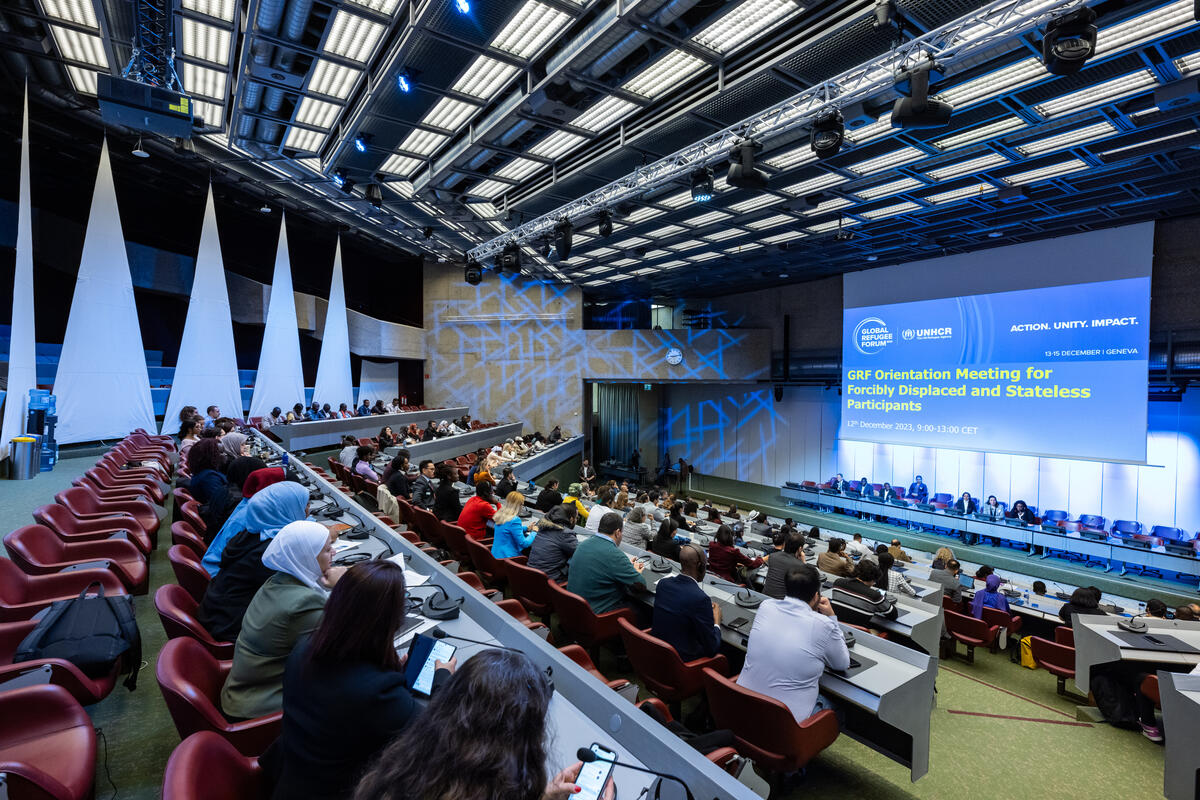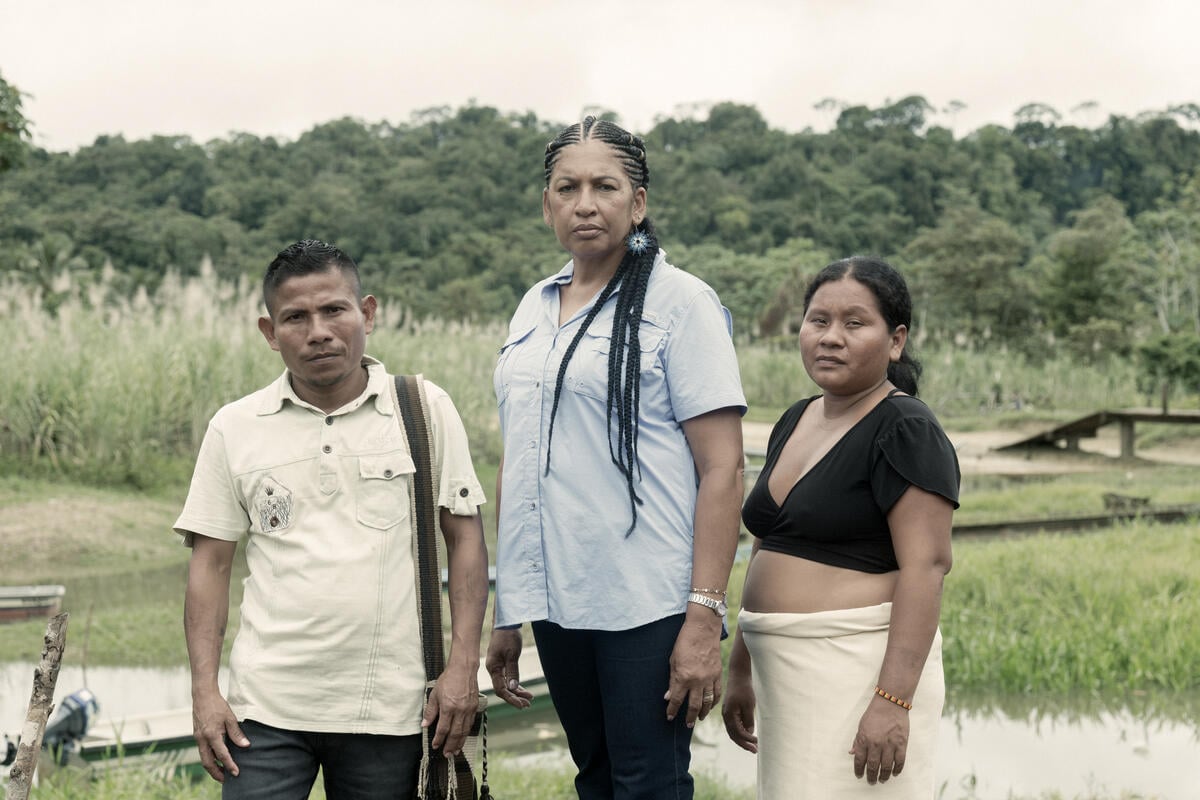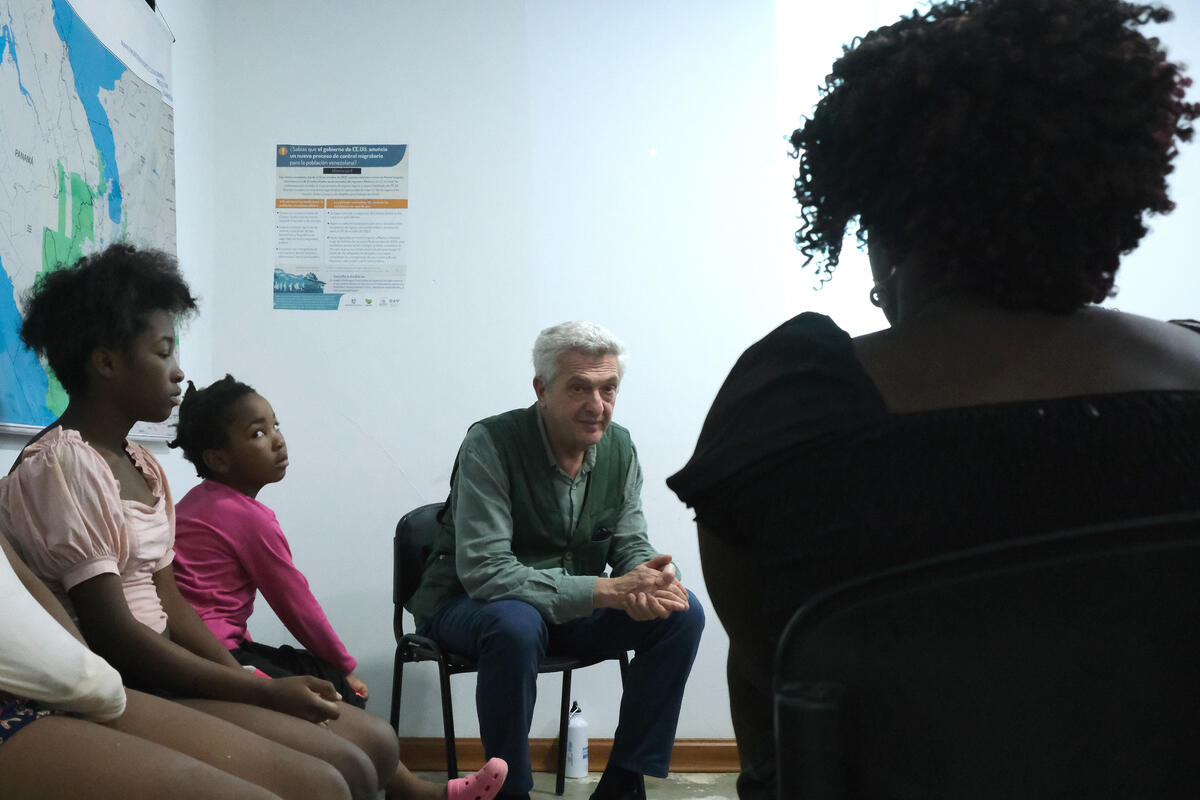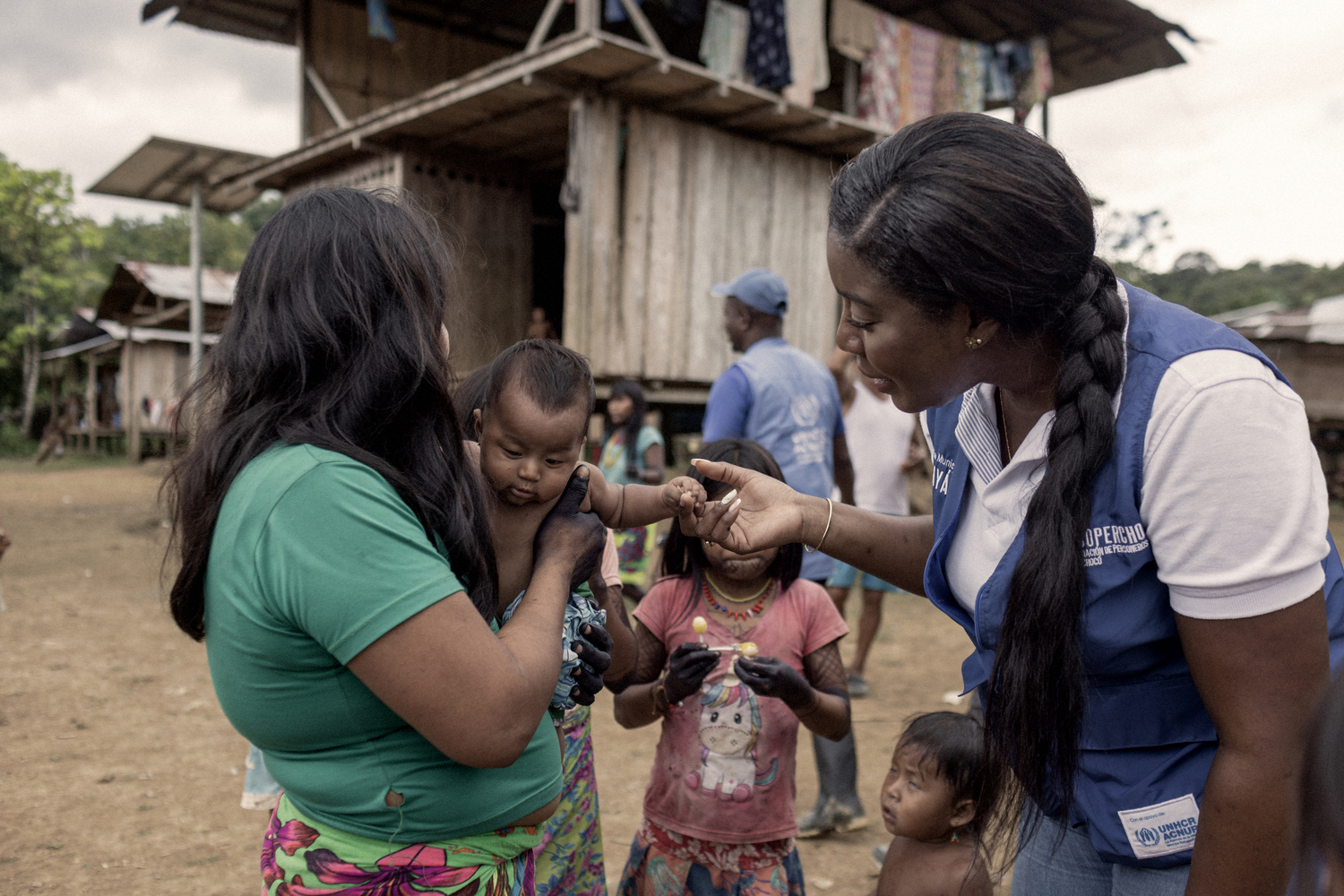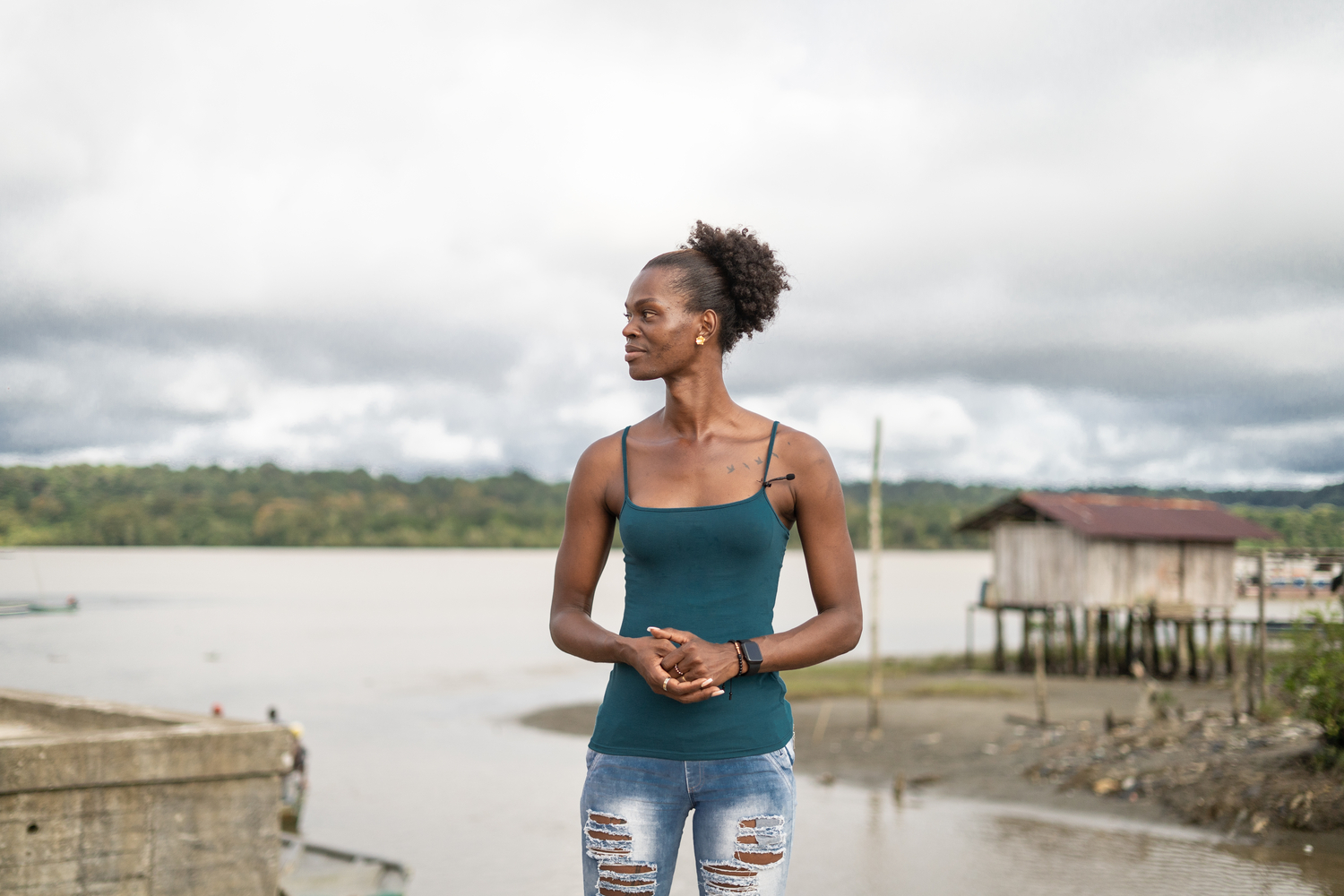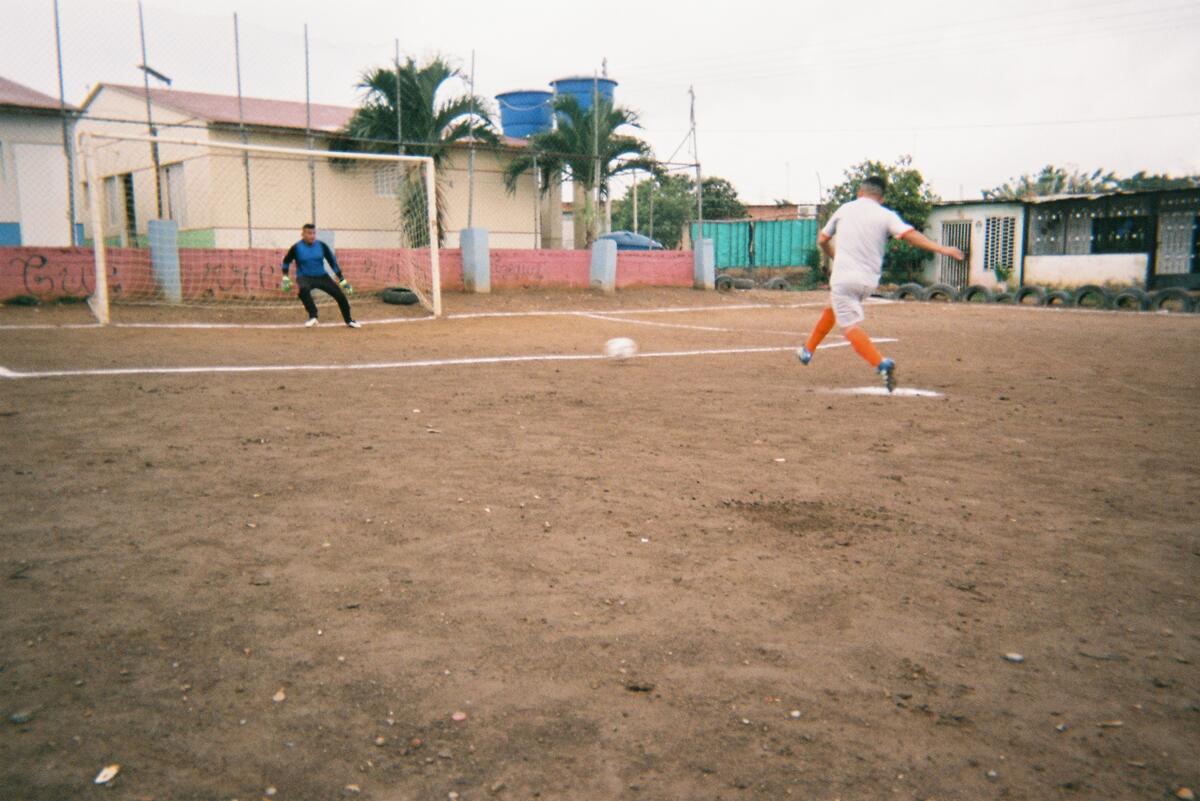UNHCR works to find durable solutions for endangered Colombian tribe
UNHCR works to find durable solutions for endangered Colombian tribe

SAN JOSE DEL GUAVIARE, Colombia, April 6 (UNHCR) - Most people forced to flee their homes believe that one day they will be able to return. But this no longer seems an option for most of Colombia's Jiw people and they have started looking at alternative solutions with the support of UNHCR and others.
There are believed to be just 2,000 Jiw people remaining in central Colombia's Guaviare and Meta departments, making their community one of the most threatened of the more than 30 tribes classified by the government as endangered. About 60 per cent of the Jiw live in an area of just a few hectares, after being forced to flee the vast territory that they used to regard as home.
In December, High Commissioner for Refugees António Guterres visited small communities of the Jiw and the Nukak Maku people in the rainforest near the town of San Jose del Guaviare. "We cannot move around any more to look for food, our territory is mined. We are confined and surrounded by illegal armed groups," one Jiw leader told him.
But while the High Commissioner assured them that UNHCR would continue to work with the local authorities to prevent displacement and to assist their tribe, most of the Jiw will not be able to reclaim all of their ancestral lands soon, if ever, and resume their traditional lifestyle alongside the Ariari and Guayabero rivers.
"The persistence of violence does not allow the return of the Jiw people to their territory," said one municipal official in San Jose del Guaviare. He added that the municipality was working with UNHCR to "seek alternatives to the current impossibility of a return plan."
This basically means local integration and helping the Jiw to build a new life for themselves. As part of this process, UNHCR and its partners have worked with the Jiw to analyze the risks they face and to look at ways to prevent further displacement. This includes identifying land that could be purchased by the authorities for the resettlement of Jiw communities.
The refugee agency's interventions are also aimed at strengthening the leadership and coordination capacity of the community. The fruit of this has been the creation last August of an organization called Naxaem, which acts as the voice for all of the scattered Jiw communities in Colombia. Naxaem has also been working with the government to draw up specific measures to save the Jiw.
Meanwhile, UNHCR, in cooperation with the local authorities and its humanitarian partners, including the European Commission's ECHO programme, has been helping the Jiw in more practical ways. This includes providing displaced communities with clean water and sanitation systems, food security projects and adequate housing.
The refugee agency has been promoting the importance of education for young people in an area where forced recruitment is a major cause of displacement.
The outside world came to the Jiw in the most brutal way in the late 1990s, when paramilitary forces entered their territory and changed their lives forever. On July 15, 1997, the intruders arrived in the small coca-growing town of Mapiripán in Meta department and massacred at least 60 people.
Ever since, the area has been contested between rival armed groups. Caught in the middle, the indigenous people have been forced to flee and set up home in an ever shrinking area. Many have left their lands altogether and started to settle in reservations near San José del Guaviare and Mapiripán, such as the Barrancón reservation, where some 500 Jiw have found shelter since 2008.
"We need to return to a place where we can be free, develop our culture, produce our own food and search [in the forest] for medicinal plants," said Ignacio, a leader of the Jiw community at Barrancón. "The Jiw people want to go back to having a normal life," he stressed.
"Having no territory is just like being an orphan," said Arthur, another Jiw leader in Barrancón. He said he worried for his own future and that of his family and people. "Our lives are in a precarious condition," he said, referring to how exile is affecting their tribal structure and the way they communicate with each other.
By Francesca Fontanini in San José del Guaviare, Colombia

